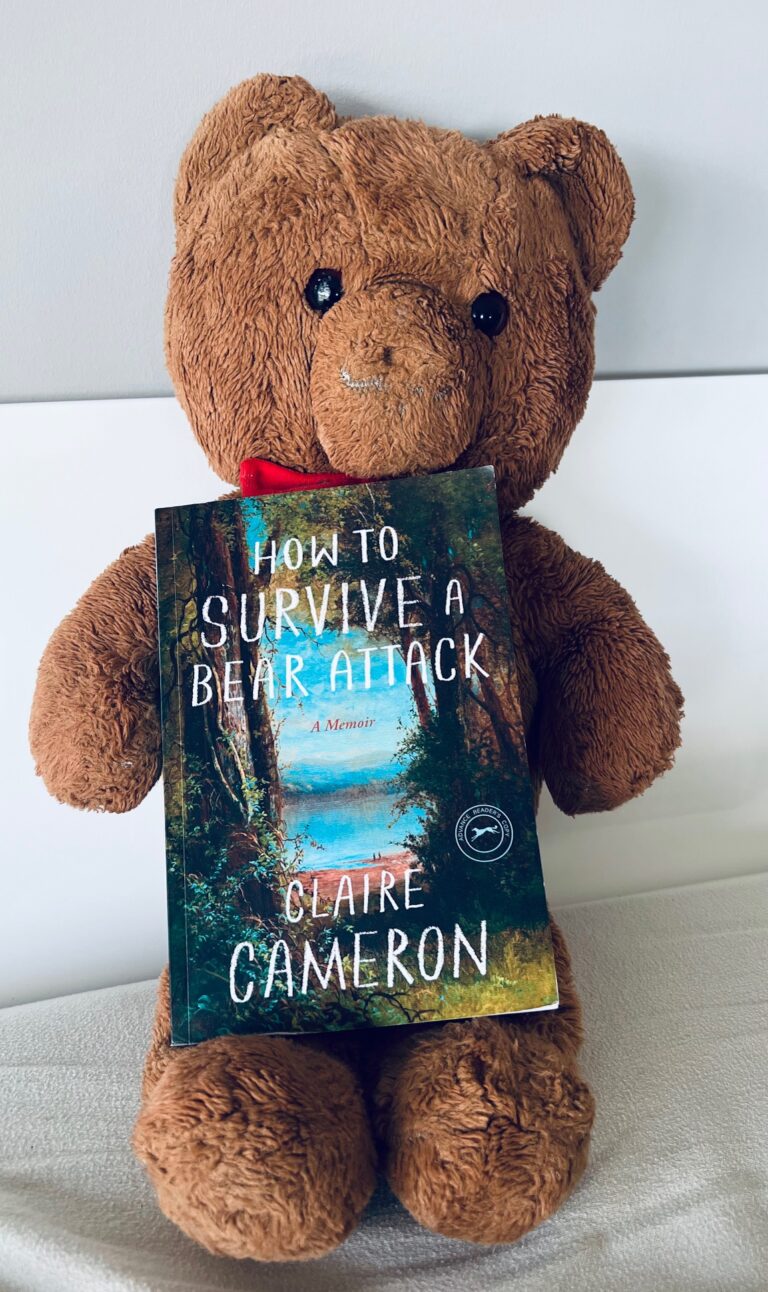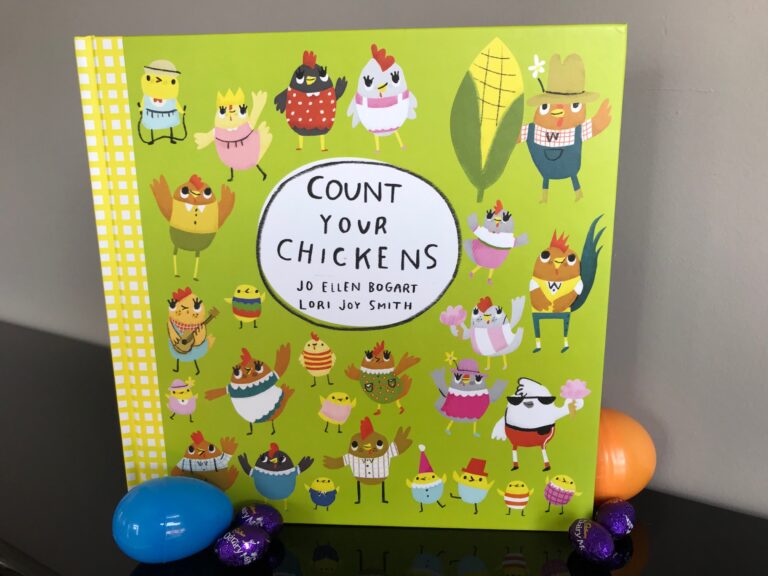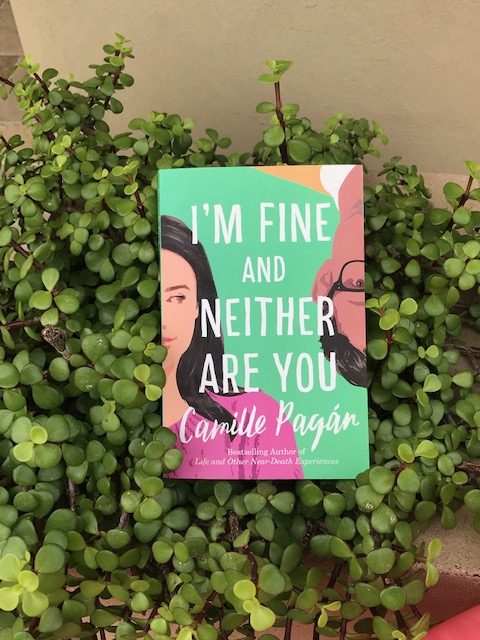Book Review: You Don’t Have to Say You Love Me by Sherman Alexie
Wowza, this book packs a punch. Sherman Alexie‘s memoir You Don’t Have to Say You Love Me is full of so many things: anger, humour, poetry, confessions, racism, rape, even a brain tumour. It’s hard to believe that one man has experienced such highs and lows in his life, yet even though he freely admits he could be remembering things incorrectly, you don’t doubt for one second that what he is saying is true.
Alexie grew up on a reserve with a mish-mash of family; his older sister died in a trailer fire, his father drank himself to death and Alexie himself was assaulted by various members of his family and family’s friends. Then he became a famous author. But his mother in particular plays the biggest role in his book aside from Alexie himself, she is larger than life to him, even though he had a very fraught relationship with her. She was emotionally and physically abusive to him, but Alexie never seems to ‘get over’ her, crumbling under the grief he experiences when she dies.
‘Raw’ is probably the best word to describe this book. Alexie is filled with rage at many things and people, but he also spends a great deal of time reflecting on how being an Indian in America has shaped his life, and the numerous questions he is suffocated by when it comes to his culture. I really enjoy reading indigenous perspectives because I think it offers a window into a very complicated part of our society that many people don’t bother to understand or listen to, but everything I’ve read until now has been from a Canadian-Aboriginal perspective, so it was incredibly valuable to read a memoir from a Native American. His thoughts and points were very similar to those that I’ve read before, but he was much more blunt in expressing them. In fact, he made things much clearer for me, and I found a few of his quotes summed up the destruction we (as North Americans) have had on our indigenous peoples very succinctly. I apologize for this long quote because I don’t normally do this, but I found it much too important to not repeat:
“If some evil scientist had wanted to create a place where rape would become a primary element of a culture, then he would have built something very much like an Indian reservation. That scientist would have put sociopathic and capitalistic politicians, priests, and soldiers in absolute control of a dispossessed people-of a people stripped of their language, art, religion, history, land and economy. And then, after decades of horrific physical, emotional, spiritual and sexual torture, that scientist would have removed those torturing politicians, priests, and soldiers, and watched as an epically wounded people tried to rebuild their dignity. And, finally that scientist would have taken notes as some of those wounded people turned their rage on other wounded people.
My family did not escape that mad scientist’s experiment. In my most blasphemous moments, I think of that evil scientist as God.” (p. 340). 
Through this book we also learn that Americans forced their indigenous peoples into what Canadians called residential schools where they were beaten, raped, tortured and forced to abandon their culture and heritage. Why is this fact not talked about more? Why are so many people still so ignorant to this part of our history? I find it so frustrating when other people say “why don’t they just get over it?”, because how can you expect generations of people to just get over decades of horrific treatment like this? It drives me crazy when people are so flippant about this stain on North America’s history, I could write rants for days if given the opportunity. Luckily people like Sherman Alexie exist, who are much more eloquent (and entertaining!) when talking about this issue. Despite the deplorable things Alexie had to endure growing up, he still retains a wonderful sense of humour which shines throughout this book.
I do have one complaint about this memoir, and it’s one that really irritated me. For some reason, Alexie keeps mentioning certain facts over and over again like it’s the first time he’s written them, but really, it’s been included throughout the book. For example, he says over 5 times that his sister died in a trailer fire, like it’s new information to us. He doesn’t just reference it, he states it as a fact, in it’s own sentence. I find this so frustrating because it feels like we’re reading a collection of essays that wasn’t edited properly. I can only assume this repetition was done on purpose for artistic reasons, but I really hated it. Other than that, this book is amazing and highly recommended.





I love love love “The Absolutely True Diary of a Part-Time Indian”. You have to read it, Anne. Although, this book also involves a sister dying in a burning trailer …
The eye opener for me was reading about the sad fact that many indigenous youth attend more funerals in a month than most white Americans in a life time. In that context, reading about the death of his sister – again and again – does make sense.
I am already on the waiting list at the library for this memoir.
Yikes! I forgot about that statistic in the book Beatrix, but you’re right, indigenous youth are exposed to so much death on such a regular basis that it’s no wonder their rates of suicide are so high. You won’t regret reading this memoir at all, hope the waiting list goes quick :)
I’ve read his Lone Ranger/Tonto collection, but I noticed that he IS a really repetitive writer. Actually, his work reminds me a lot of that from Junot Diaz. It feels like you’re reading the same character doing the same things over and over, and you feel positive that the character is basically a version of the author. While I respect Alexie’s writing, I think a lot of people turn to him because he is the only Native American author they can think of. I tend to like better Leslie Marmon Silko, Louise Erdrich, and Joy Harjo.
I’ve heard really good things about Louise Erdrich! I think this book might be repetitive bc I’ve read some reviews that refer to it as a collection of essays, but it’s a memoir, so I don’t know…
Collections of essays get repetitive because there are usually pivotal moments that gives context to other moments, so those big moments get repeated and recontextualized.
The repetition sounds like an editing problem, really! Other than that, it sounds amazing (and I loved the quote too.) It is truly very sad what happened to the natives and I still can’t believe it’s such relatively fresh events, wasn’t even the dark middle ages or anything :/ I’ve been disappointed in the culture of today (which is effectively Western pretty much everywhere in the world now) and that the culture we have now is built on and could repeat things such as this. It’s sad… and it’s necessary to talk about it.
I’m late finding your review (via your 2017 round-up post) and remembered that you mentioned how much you enjoyed this when it appeared in one of my posts at some point so I wanted to read your thoughts. We are in agreement about many things, but the one spot we felt completely differently about was the use of repetition and echo, which I felt was a simply perfect motif given the quilting theme.
Mind you, I did always notice it – that editing eye, I guess – and it did feel uncomfortable, but then it just worked to reinforce the idea that those key things (especially about the story which was told about a rape, which was an ever-shifting story too, just to make things even more complicated!) were the recurring images in his mind and his heart, the quilt of his be-ing so to speak. With some awfully dark squares.
I wish I’d known you were reading this; it was a difficult – albeit beautiful – read. The kind of book with which it’d have been nice to have company reading!
Ah yes, I know what you mean-having a reading companion so to speak would have made it a bit more bearable :)